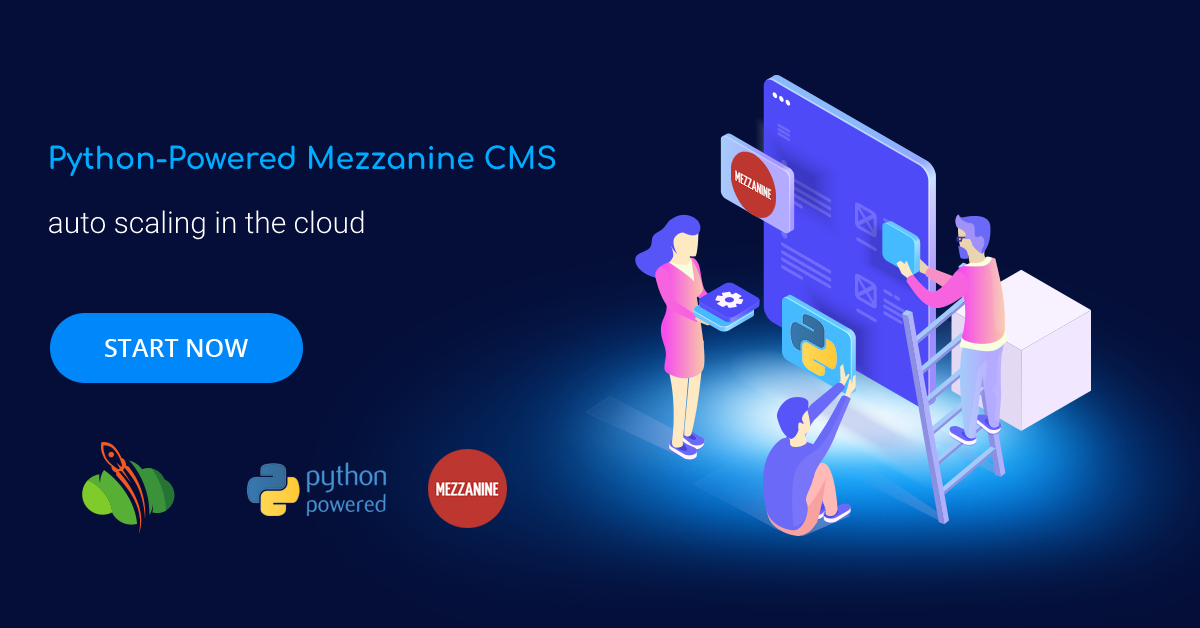Mezzanine is a powerful, consistent, and flexible content management platform, built using the Django framework. Mezzanine CMS contains a vast number of third-party extensions, widgets, modules, and themes, and can be easily customized to suit customers specific needs:
- WYSIWYG editor with the Drag-and-Drop page ordering and visual content editing
- scheduled publishing
- a broad variety of ready-to-use themes
- rich API
- out-of-the-box Django internationalization, Twitter Bootstrap, Disqus, Akismet spam filter, Twitter feed, and Google Analytics support
- embedded integration with social networks, search engines, SEO functionality, and a huge number of modules
Now let’s go through the guide of Mezzanine hosting at Cloudlets Australia cloud platform.
Create Python Environment
For Mezzanine CMS hosting in the cloud, you`ll need a Python-based application server, so let`s create a new environment with the Apache Python node:
1. Click the New Environment button at the top of the dashboard to access topology wizard.
2. Open the Python tab, where the required Apache Python application server will be selected by default.
Configure the settings, or leave as is for the platform to fulfil the installation by default, type the name of your environment, click Create.
3. Your environment will appear at the dashboard in a moment.
Now, you can proceed to the Mezzanine CMS application deployment.
Mezzanine CMS Automatic Deployment
You can automatically deploy Mezzanine CMS using a specially prepared deployment archive already configured with SQLite database.
1. Add application archive to the deployment manager via the following link:
https://download.jelastic.com/public.php?service=files&t=3d6fa1ed641a044c6a291bbeaa6c333c&download
2. Deploy Mezzanine CMS into the environment with the Apache Python application Server.
3. After successful deployment, click Open in Browser next to your environment.
4. That’s all, your Mezzanine CMS is up and running in just a few minutes!
Start working with your Mezzanine CMS application (the default credentials for the admin panel are - admin/default).
Register for free to try it out and create your own blog posts, datas, product stores, and other types of content.
